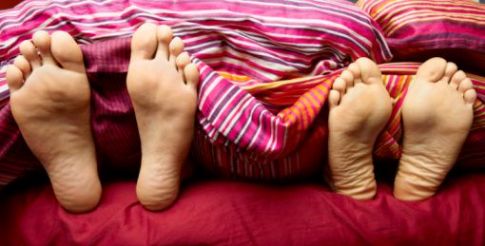Hypersexuality refers to obsession with sex, so much so that it can make the person outright uncomfortable and disrupt their daily life. Earlier a person suffering from excessive need for sexual gratification was termed as a nymphomaniac. Intense research has shown that this condition may be linked to prescription drugs that are being administered for other health conditions.
Hypersexual disorder induced by drugs has been specifically connected to the treatment for Parkinson’s disease and/or epilepsy or strokes. Development of hypersexual behavior in older people is generally attributed to the treatment given for Parkinson’s disease and strokes, two very common ailments among the elderly.
 There has been considerable research regarding the connection between the two that focused on analyzing mostly with how the brain cells react to the treatment given for strokes or Parkinson’s disease.
There has been considerable research regarding the connection between the two that focused on analyzing mostly with how the brain cells react to the treatment given for strokes or Parkinson’s disease.
Parkinson’s is a degenerative disorder of the brain, and is currently incurable. Researchers have not been able to find a way to reverse the damage caused by it. Certain drugs may help relieve the symptoms temporarily or sometimes slow down their progression. Parkinson’s is caused due to insufficient levels of dopamine in the brain. All drugs are based on the revival of the dopamine cells and receptors in the brain.
Increased dopamine levels in the body and brain may lead to a feeling of sexual dissatisfaction, which may lead to an increased libido or hypersexuality. For some patients it may come as a welcome change, especially if there has been loss of libido due to the person’s health conditions. It may in fact help to revive their sexual life.
But in some patients it may lead to intense sexual urges or hypersexual behavior causing them physical and mental discomfort. In such cases the drugs need to be changed in order to bring down the high dopamine levels in the brain.
Similar cases have been observed in epilepsy and stroke patients where the medication has led to an increased libido although the chemicals and routes involved here are different from those in the Parkinson’s disease patients.
Patients showing drug induced hypersexuality are treated with quetiapine to help bring down high libido levels. Improvement is shown within a couple of days of changes made to the medications of the patient’s concerned.
These researches go a long way in showing that it may be difficult for humans to control their own urges, even when they are uncomfortable about it, because of the chemicals floating in their brains and affecting the way they think.
Hypersexual disorder has also been observed in people who are suffering from bipolarity. They seem to be able to control their sexual urges only as much as they can control their mood swings. This can prove to be especially disastrous for those who are in a relationship.
The partner of a bipolar person who is struggling to cope with the rapid mood swings may find it very difficult to cope with excessive sexual gratification demands within the relationship. It has been also observed that a hypersexual person may look for it outside the relationship, putting a lot of undue strain on the already delicate relationship.
It is essential to treat people with drug or disease induced hypersexuality with care. They are battling two demons and need a lot of support.




I amwondering if longterm usr of Zoloftcould cause this